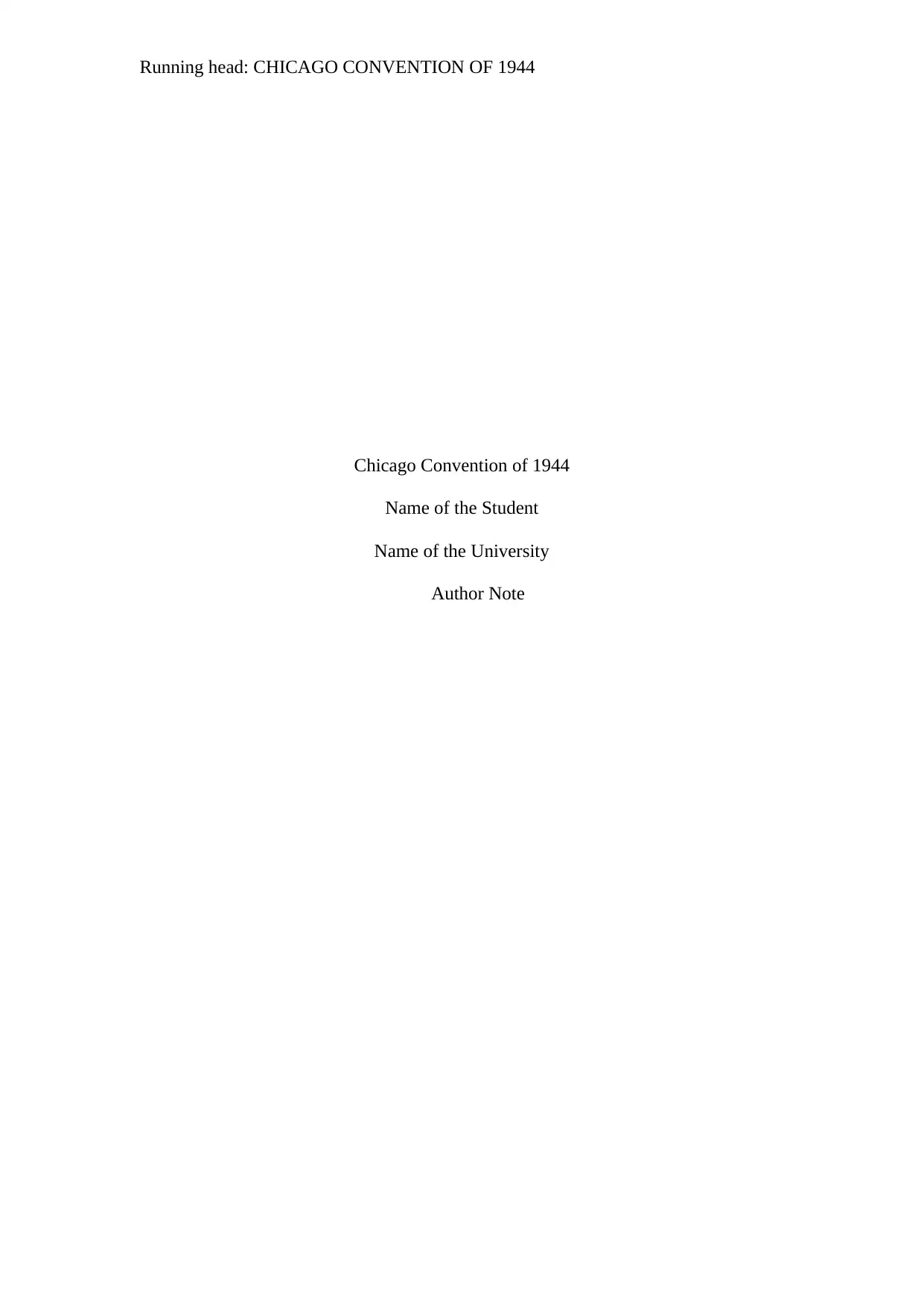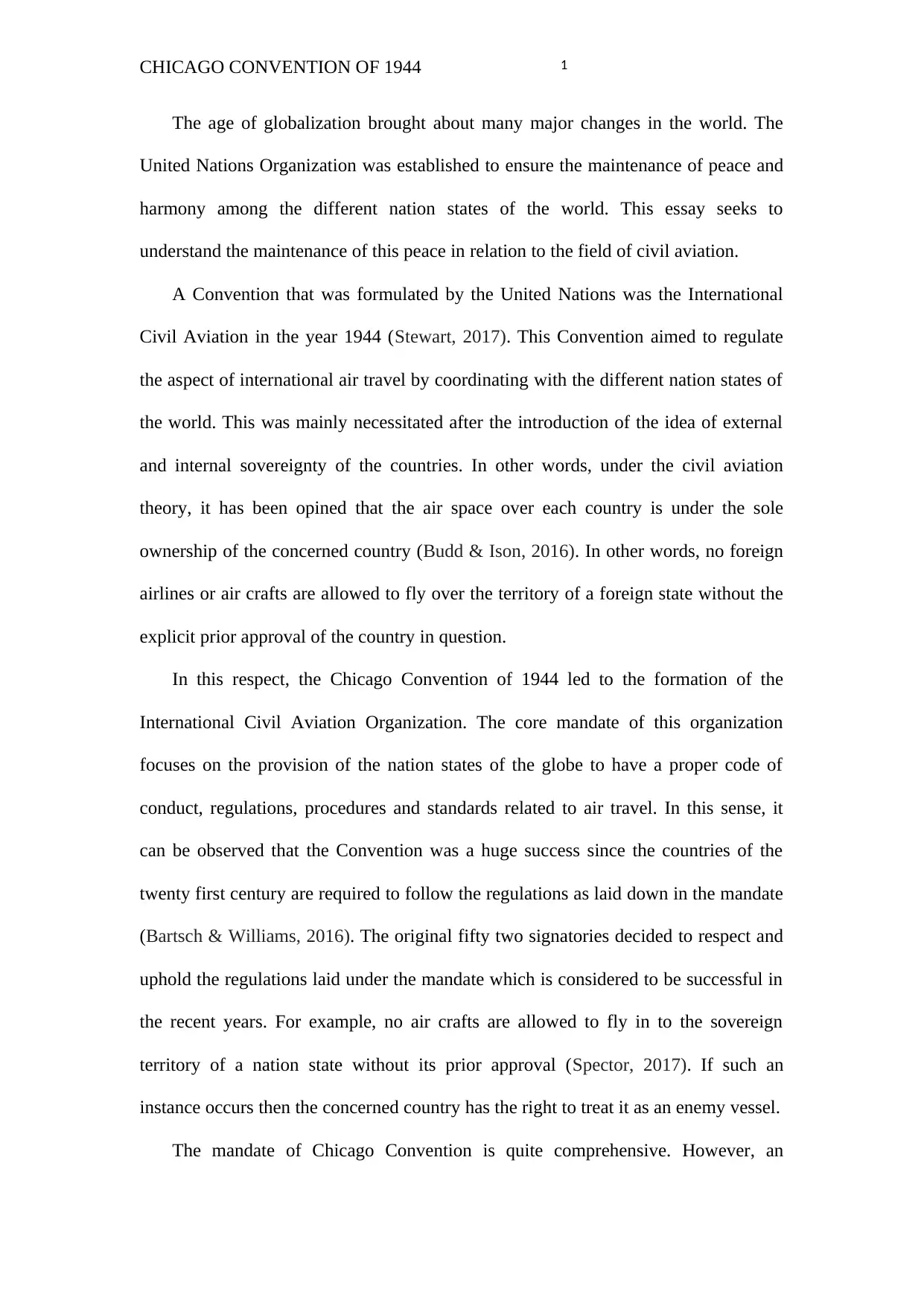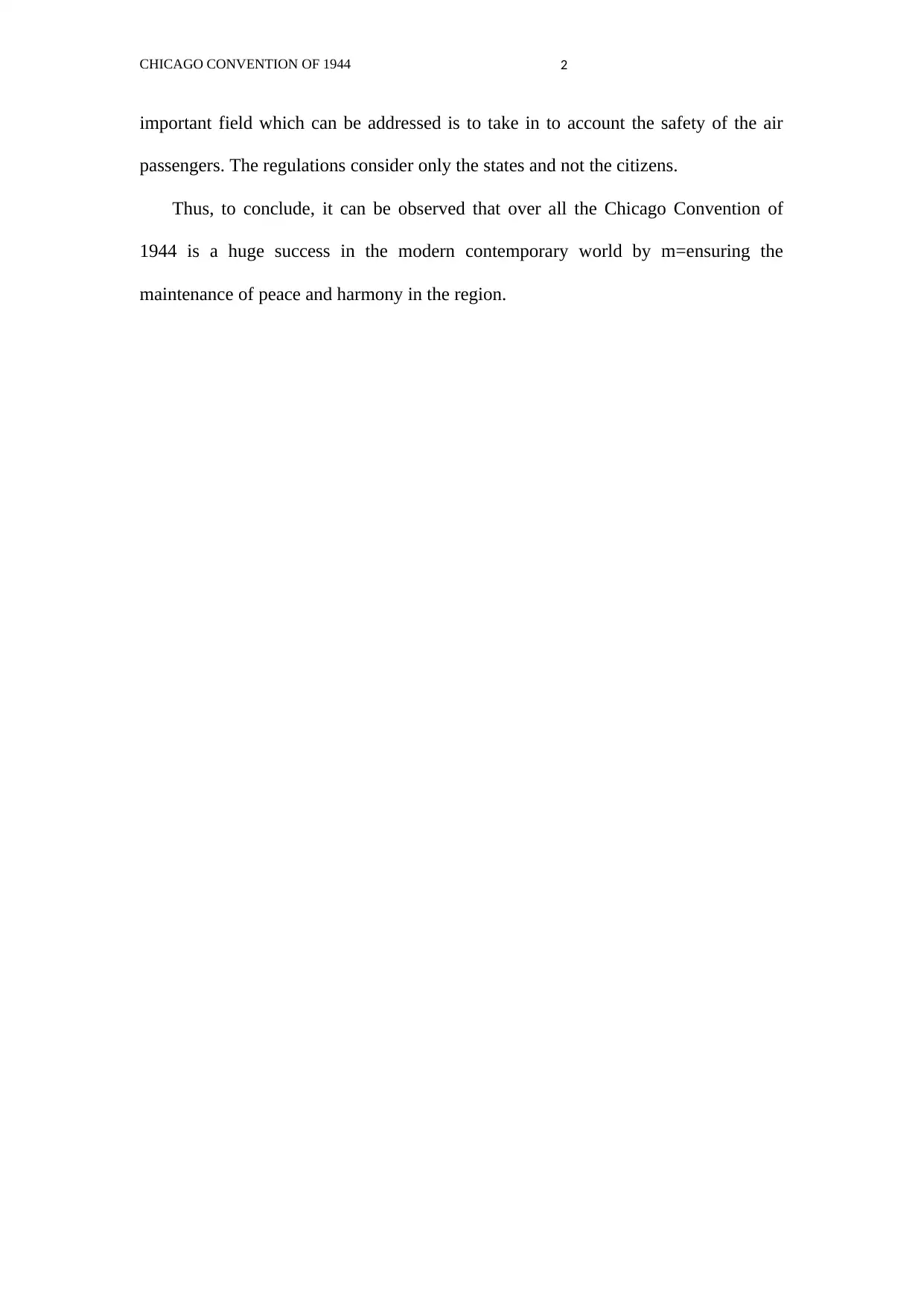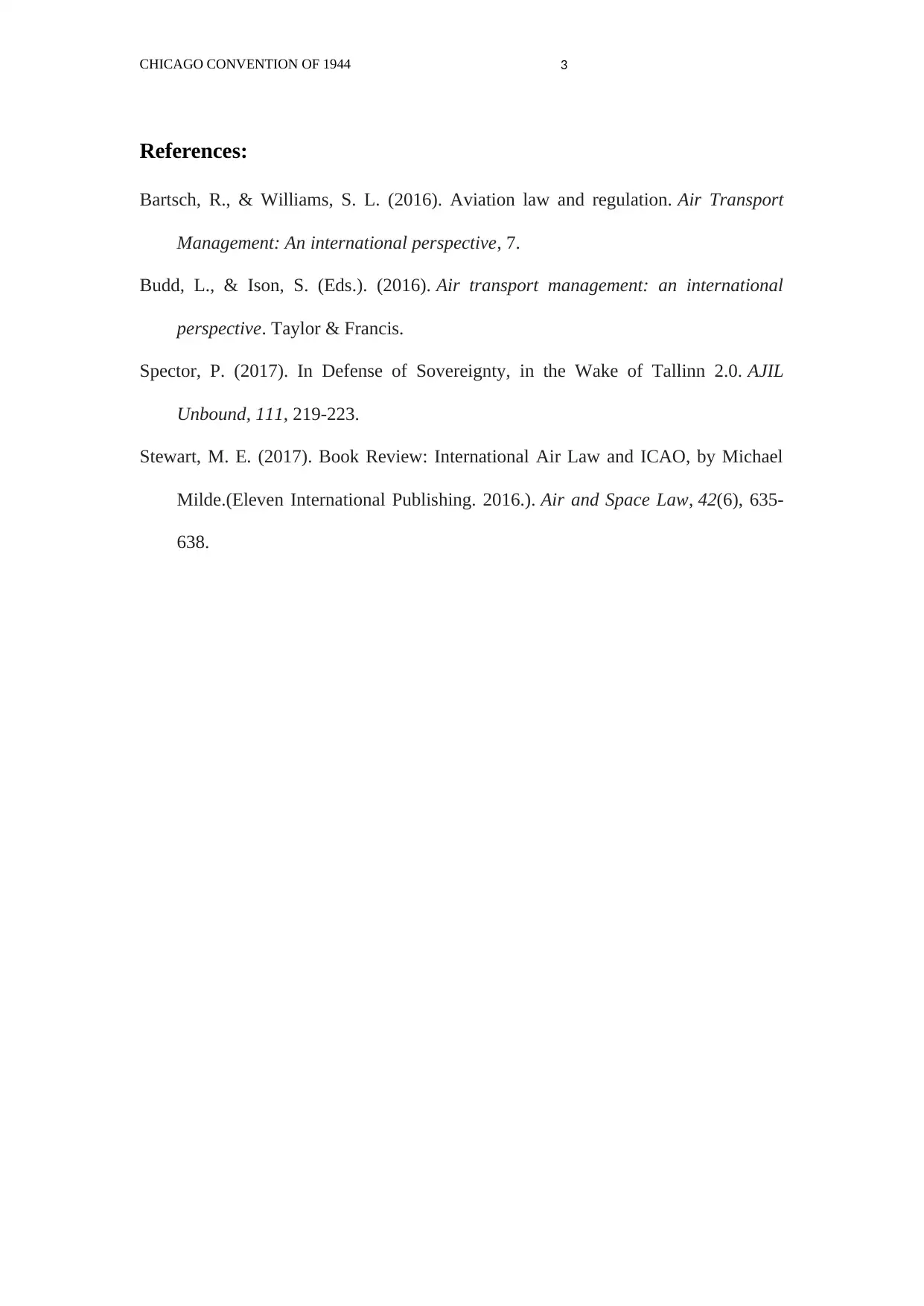Chicago Convention of 1944: International Air Travel Regulation Report
VerifiedAdded on 2022/10/12
|4
|605
|298
Report
AI Summary
This report delves into the Chicago Convention of 1944, a pivotal agreement in the realm of international air travel. It examines the convention's role in establishing regulations for global aviation, emphasizing the concept of national sovereignty over airspace. The report highlights the formation of the International Civil Aviation Organization (ICAO) as a direct result of the convention, and its mandate to provide a standardized code of conduct for air travel. It discusses the significance of the convention's regulations and its influence on the modern aviation industry, noting the importance of prior approval for aircraft entering sovereign territory. The report also touches on the need to consider passenger safety within the existing framework. Overall, the report concludes that the Chicago Convention of 1944 has been highly successful in promoting peace and order within the international aviation sector.
1 out of 4








![[object Object]](/_next/static/media/star-bottom.7253800d.svg)